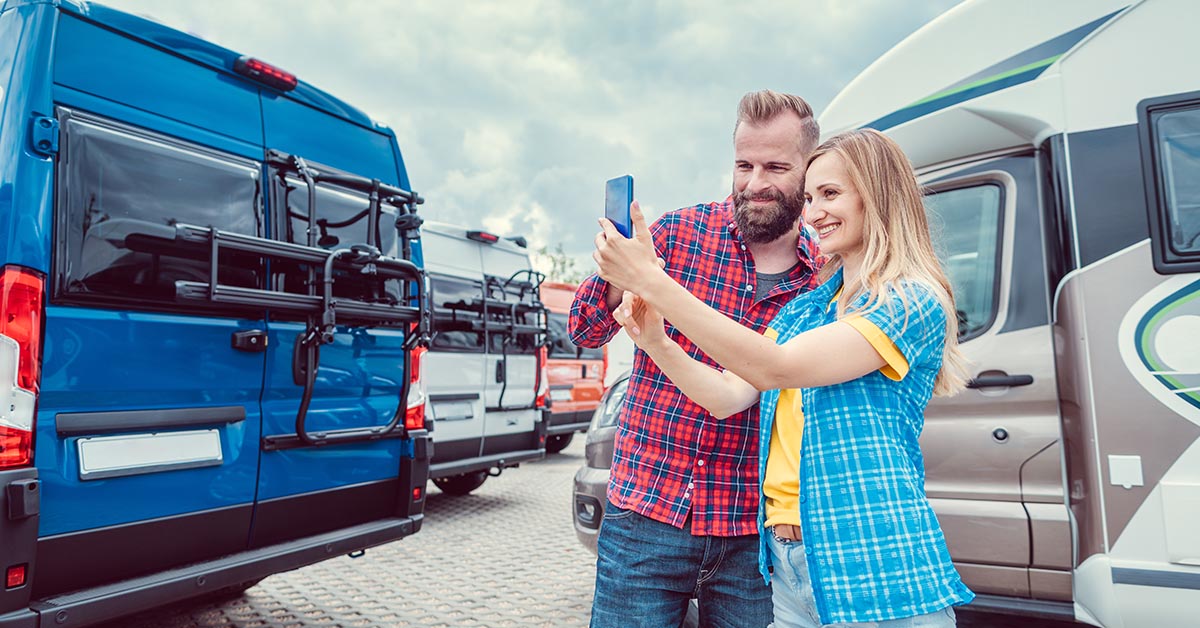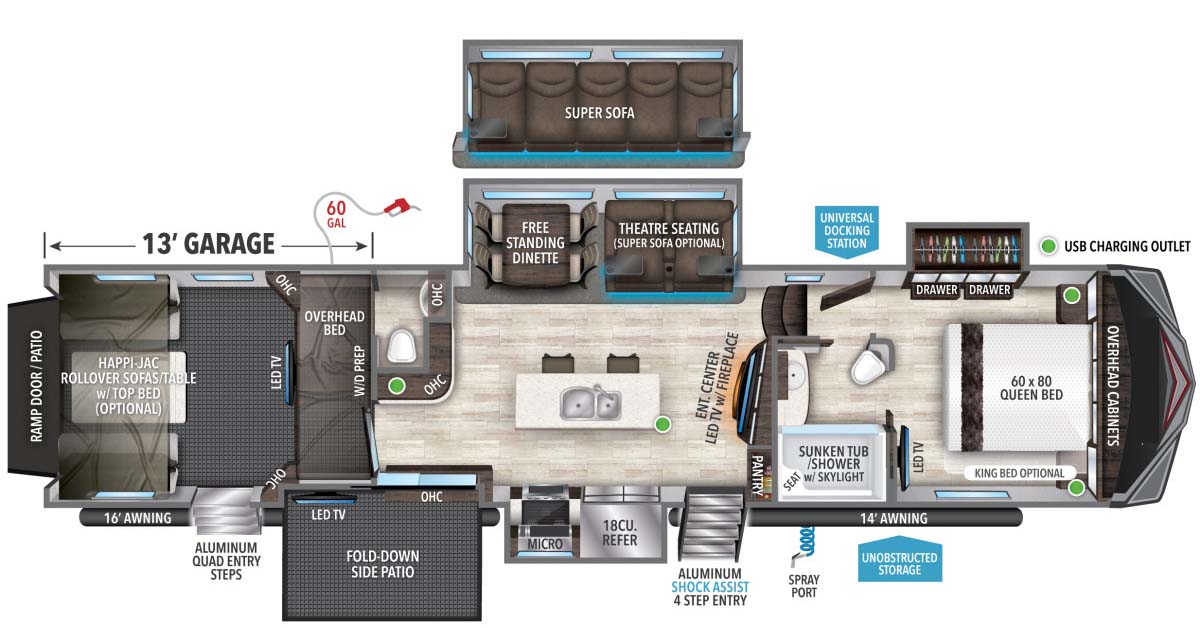by RV Dee
Share
by RV Dee
Share
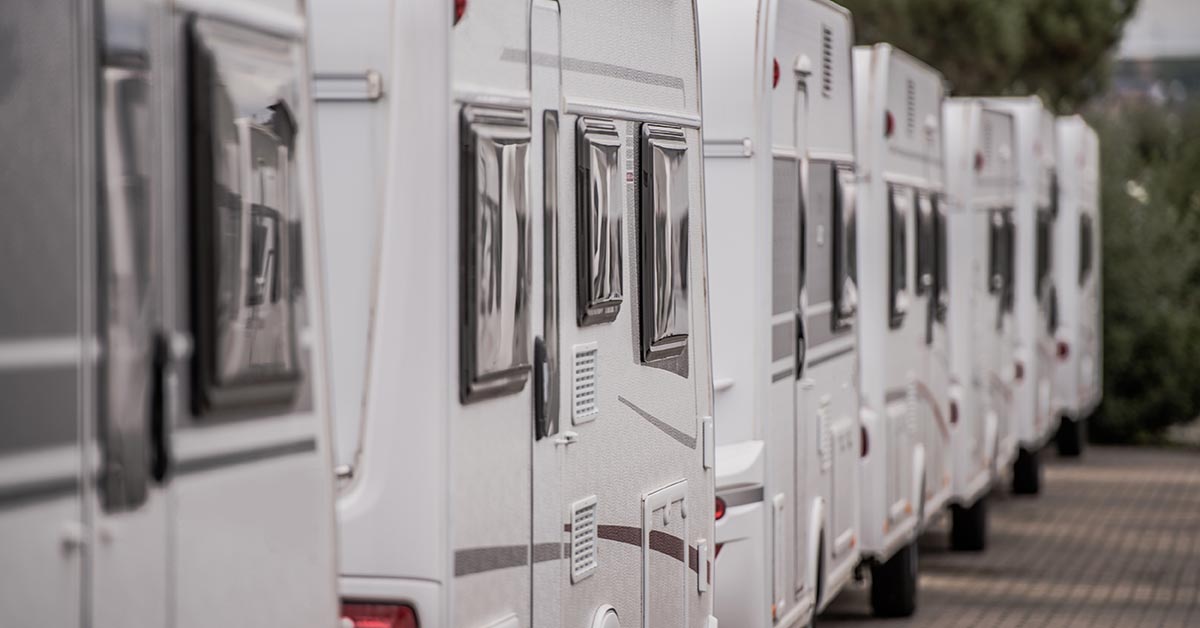
A comprehensive guide for the first-time RV buyer
How To Find the Perfect RV, Recreational Vehicle, involves considering various factors to match your lifestyle, travel needs, and budget. Here’s a step-by-step guide to help the first-time buyer find the right one.
If you own or have owned an RV in the past, check out our recommendations for veteran RV owners, How to Find the Perfect RV for RV veterans.
RV Sales Staff
The first thing to discuss is RV Sales staff. Many of us fear that we’ll go to an RV dealer or RV show and be pressured to buy an RV that won’t suit our needs. My experience has been that this doesn’t typically happen. Now, I’m not saying that if you show interest in an RV, the salesperson may not push you to buy it, but they don’t typically just railroad customers into purchasing an RV that they’ve had sitting on the lot.
I believe our fear stems from experiences with automobile sales staff. The main difference is that a car salesperson knows that any vehicle they sell you has a 90% chance of meeting your needs. The experienced RV salesperson knows that is not the case with a camper. There are many more factors involved.
If you meet with an RV salesperson, just let them know that you are just starting to look and don’t plan on purchasing until next year. So far, I’ve never had a salesperson pressure me into purchasing anything after I told them my position.
I’m spending the time to talk about this because it will be difficult, if not impossible, for you to make a good purchase decision if you don’t get out and look at RVs—not to make a purchase decision but to familiarize yourself with the different configurations, options, and sizes available.
What do you want to use it for?
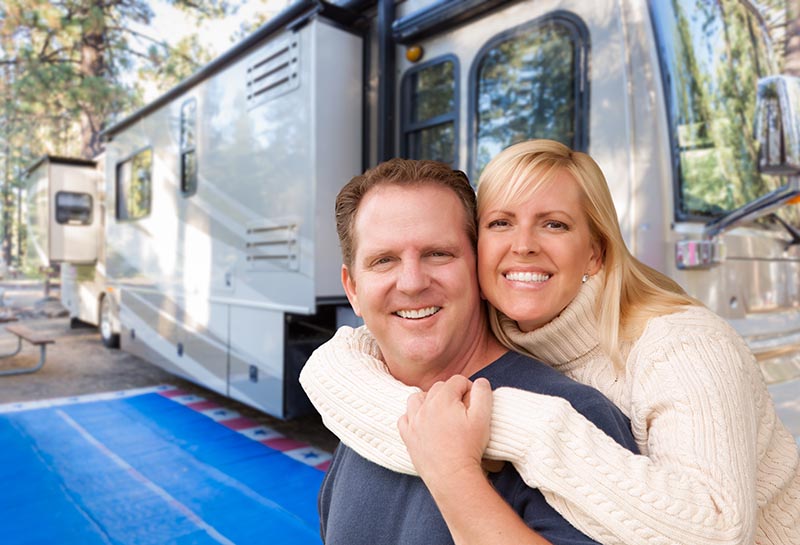
This is a very important factor. RV salespeople will ask you a variation of this question. However, it’s also important to know this information for your decision-making. Some of the reasons that come to mind are:
- We Want to spend time in different places during vacations
- Want to spend time in different places on weekends
- Want to visit various sporting events/races
- Take extended breaks and travel to different locations
- My work has me travel and stay in different locations for extended periods
- I’d like to live in the RV full-time
If your reasons for wanting an RV fall into the first three categories, it’s important because you may be able to find what you need in a smaller RV. Typically, the longer you spend in the RV, the more storage and cooking space you’ll require. If you’re only staying in the camper for a few days at a time, a smaller bathroom might be sufficient.
Where will you be going?
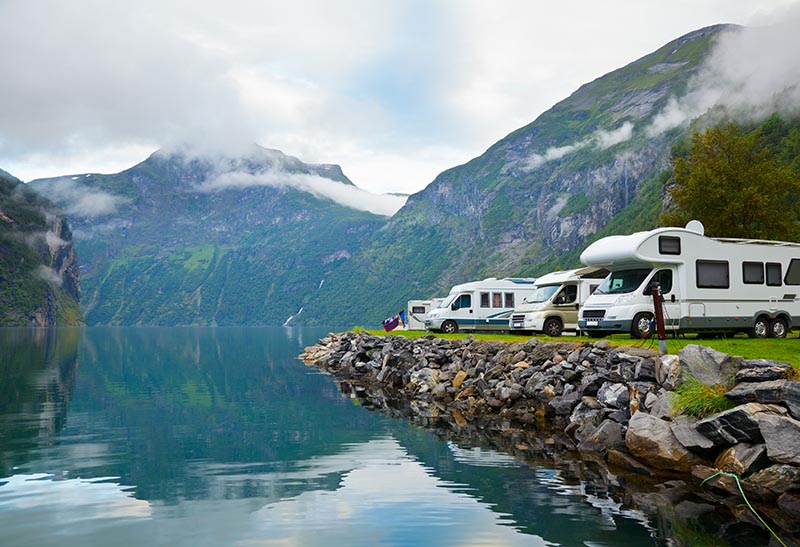
When you feel that most of your time will be spent in RV parks, as opposed to at sporting events and out in the wilderness, called boondocking, then the bathing facilities in the RV camper become less important. The vast majority of RV campgrounds have shower and restroom facilities, so you could actually go an entire trip without using the bathroom in your RV.
Attending sporting events or being in the wilderness requires attention to the freshwater, black, and gray water tank capacities. You would want to define the minimum amount of fresh water you’ll need to last for several days without refilling and dumping your sewage. There are many tricks that RV owners use to minimize the use of water, but that’s a topic for another day. At a minimum, you’ll want enough water for the occasional shower, hand washing, etc. You could always bring a few gallons of water with you for cooking.
Boondocking
If you think you’ll be “boondocking” often. Check which parts of your RV will work with the house batteries. House batteries are typically six- or twelve-volt car batteries combined to provide several hours of interior lights and a few other things.
An appliance such as a residential refrigerator, even with an inverter, won’t last long on the house batteries. You’ll need to either make sure your RV has a built-in generator, or a connection for an external one. Be aware that most campgrounds won’t allow you to run your generator overnight.
How many people will be going?
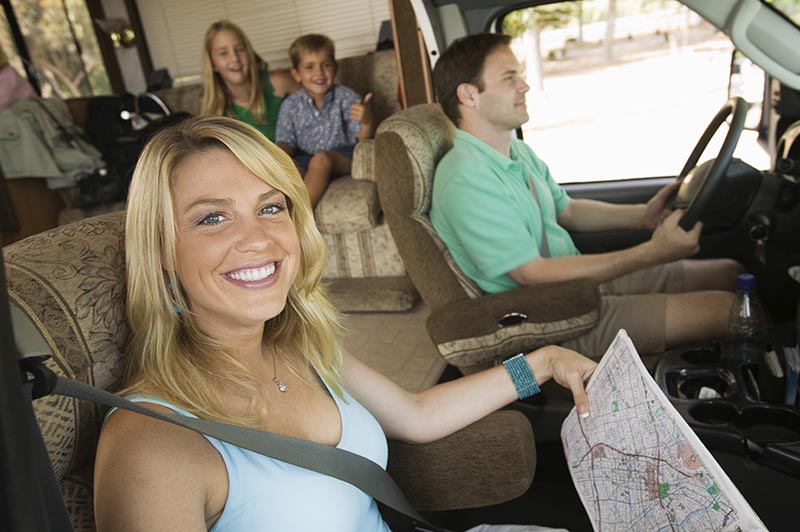
How many people will be in the RV is a crucial piece of data. You should also consider the height of those in the RV. Most RV’s have plenty of space, not because of the ceiling height, but because of the bed size. The typical RV of any size comes with one Queen-size bed. But be careful; one of the most popular RV manufacturers prides itself on having a special RV Queen size smaller than a standard Queen size. This could be problematic for tall people.
Knowing the types of sleeping facilities that will work for you is important. Adults typically want something comfortable and sturdy, while kids may be able to sleep anywhere, including tight spaces. RV models with bunk beds are normally called “Bunkhouse” models. They almost always have a “BH” in their model number.
Bunk Beds
RVs typically have one main bed, Queen, or King options. Then, they may have bunk beds, fold-down beds, couches that turn into beds, and beds that lower from the roof. Keep in mind that getting to any beds not at floor level means some ladder will be involved. Aside from being sure the people that will be using those beds can climb a ladder, it may also be a hazard for folks moving about the RV at night. The ladder has to stay in place in case the bunk user needs to use the bathroom in the middle of the night.
There is also the consideration of storing the ladder. I owned an RV once that had two bunk beds. Trying to find a place to store those two ladders while underway was a bit of a pain.
Length of stay?
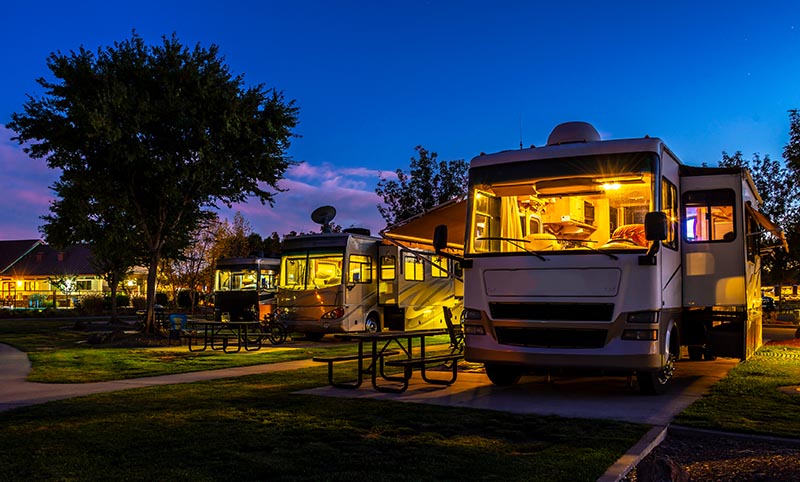
As discussed earlier, if you plan to use the RV for a few days at a time, then considerations regarding bathrooms and storage space will be altered. If you plan to stay in the RV for longer lengths of time, i.e. a week or more, than there are a few things to consider:
- The bathroom and shower need to be comfortable to use, unless you’ll be staying at RV campgrounds and don’t mind using shared facilities
- Removable propane tanks. Suppose your average stay is longer than a week. In that case, it’s vital to ensure you can easily remove and refill the propane tanks used for the stove, oven, water heater, refrigerator, and heating system.
- You’ll want to make sure you have enough inside storage to have a place to store a week or more worth of clothes for everyone to avoid having to do laundry.
- Eating fast food or going out to eat can become a drag. Make sure you have a large refrigerator to keep all the fixings for several meals.
Note: It is rare for Class A motorhomes to have removable propane tanks
RV Types
By now, you may have noticed that I haven’t mentioned anything about the type of RV you want. There’s a good reason for that, as the type of RV is not a very important factor. Sure, if you don’t own a vehicle that can tow a large trailer, you may want a motorized one. If you have a possible tow vehicle or would consider getting one, I highly recommend that you don’t worry about the type of RV. Pinning yourself down to a particular type is a surefire way to wind up with an RV that doesn’t have all the features you will eventually wish you had.
When we started looking for our first RV, we had discussed that we both wanted a Class A. It wasn’t until weeks later that we determined that one of our needs, to have a separate room that could be closed off for an office and hobby room, would not be available in a Class A RV. Since we had railroaded ourselves in the beginning without concern for our real requirements, we wasted a lot of time and effort looking at and discussing a type of RV that would not fit what we needed.
Approximate Budget

Just like buying a house, purchasing an RV involves many expenses. Please consider these when determining how much you want to spend, as they could affect how often you can use the RV.
One thing to remember is that RV campers don’t hold their value like automobiles do. A camper typically loses 20% of its resale value the first year and about 10% yearly after that. The significance of this is twofold.
- If you don’t put down at least a 20% down payment, you will already be behind the eight ball after the first year. What people call upside-down on financing
- If you finance it for more than ten years, you will continue to bury it more upside down as time goes on.
Many campgrounds will not allow RV campers over ten (10) years old. So, while a ten-year-old camper can still be sold, the customers are usually those looking for a cheap way to live on an open lot, etc., and typically don’t have big budgets.
Analyzing Expenses
Back to the issue at hand: additional expenses. When you purchase the RV, you’ll have a monthly payment if you don’t pay cash for the entire amount. That has to be taken into account, but there are a few others that you need to have in your mind:
- Monthly loan payment
- Monthly/yearly insurance payment (Mandatory if you have financing)
- Outfitting the RV, sheets, dining and cooking equipment, etc.
- Storage – If you can’t park the RV on your property, then you’ll wind up paying $100 a month or more to store it somewhere
- Fuel costs – Whether towing or driving a motorized RV, figure approximately 10 miles per gallon of fuel.
- RV campsite costs – These days, a nice campground can meet or exceed $100 per night
- Yearly maintenance – Every year, you need to bring the RV to a dealer to have the roof vents checked and sealed, among other things. Skipping this to save money will seem like a really bad idea if you spring a leak somewhere.
Internet
Unless you stay in top-tier campgrounds, don’t depend on having good Wi-Fi, at least not for free. Make sure your phone has a hotspot and you have a data plan to match. Otherwise, you’ll need a Mi-Fi dongle or Star-Link, which will be another monthly expense.
I highly recommend that once you complete the following checklist, you see some RVs. Remember, look at all the different types that will meet all the identified needs. Once you’ve seen a few dozen RVs in person, you’ll be in a great position to determine your Top Ten list of features you’ll want in the RV. If towing a trailer or fifth wheel is possible, don’t let the salesperson try to steer you to a particular type unless they have a logical argument.
First Time RV Buyer Checklist
- What is our main use for the RV?
- Where will we be going, RV Parks or other?
- How many people will be staying in the RV?
- Is there enough beds to accommodate everyone
- Length of Stay?
- Is the bathroom going to be comfortable for extended stays?
- Are the propane tanks removable for easy refills?
- Closets or dresser storage for clean clothes
- Refrigerator large enough to hold fixing for prepared meals
- Approximate Budget
- Overall cost
- Monthly payments
- Insurance
- Storage
- Fuel Costs
- Campground fees
- Yearly maintenance
- Internet access
Once you have seen some RVs, you may or may now have a better idea of the type of RV that will meet your needs. If not, don’t worry, as I stated before, it’s not an important factor. Getting a particular type of RV because your friends have one or some other external reason is the wrong way to make the decision.
The next steps I recommend is to come up with your Top Ten list. The RV4.US website we designed is centered around this concept. If you’ve talked to any RV salespeople yet, one or more may have actually asked you if you have a Top Ten list. You can view all the items we have in our Top Ten search at RV4.US Current Top Ten List.
Once you have a solid Top Ten list, it becomes easier to find an RV that will meet all your needs and raises the probability that you’ll be happy with your purchase for years to come. Use your Top Ten list to search using RV4.US and we’ll show you the floorplans that best match your list, as well as other requirements.
Thanks, RV Dee
RV4.US uses a term for features an RV has that you won’t find in a list of features from the manufacturer as Functional Benefits. Being able to select from a list of Functional Benefits to match an RV is only available at RV4.US. A functional benefit is a benefit that the RV has that adds




